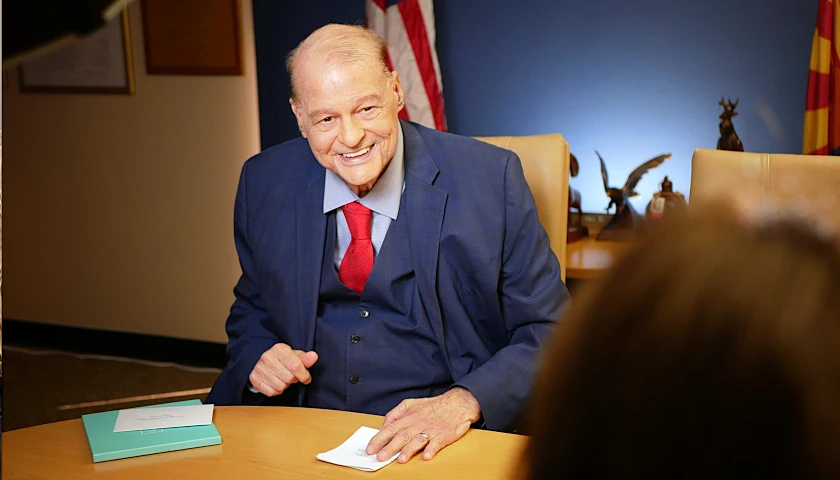Arizona State Representative Matt Gress (R-Phoenix) released a statement Thursday praising the newest Executive Order from Gov. Katie Hobbs (D) banning the social media app TikTok on state agency devices. Gress has a bill moving through the Legislature to achieve a similar result.
“I applaud the Governor for taking action to address the security and data collection threats posed by TikTok and similar apps. The Legislature still needs to act, and the Governor should sign HB 2416, a comprehensive plan to keep the state’s critical information secure and strengthen public safety. It would expand on the Governor’s order, codifying it permanently into state law, and apply to all government entities, employees, and contractors,” Gress said.
🚨FOR IMMEDIATE RELEASE🚨
State Representative @MatthewGress Applauds Executive Action Against Real Threat Presented by TikTok on State Devices.
Governor’s Executive Order incorporates parts of Gress’ #HB2416, but it is no substitute for actual changes in law needed to secure… pic.twitter.com/XikHvnxoyk
— Arizona House Republicans (@AZHouseGOP) April 6, 2023
Hobbs’s 10th Executive Order given Tuesday is titled “Protecting the State’s Cybersecurity Interests.” From its issuance, state agencies, including all executive departments and the corporation commission, have 30 days to remove TikTok from “State-owned and State-leased information technology and personal devices used for State work.” Information technology is defined as any device, such as a computer, smartphone, or tablet, that can store, manipulate, or transmit data. State agencies can seek exemption from this order but must state a reason, timeframe, and measures that will be taken to mitigate cybersecurity risks.
Additionally, the order directs the Arizona Department of Administration (ADOD) and Department of Homeland Security (ADHS) to develop a plan to prohibit the app from being downloaded on state devices and devise a punishment for any violation. Starting in December, these departments are also tasked with creating an annual report detailing other applications that could pose a similar threat.
Gress’s bill, dubbed the “No TikTok on Arizona Government Devices Act” would make a few additional requirements if it becomes law. The ADOD would need to develop “standards, guidelines, and practices” (SGPs) for state information technology use. These SGPs would also be applied to state contractors and higher education universities. All state employees would need to annually sign a document stating they understand the SGPs and any employee found violating them is subject to disciplinary action, including termination.
Gress’s bill passed the House on party lines in February and is awaiting a third reading in the Senate before it can go to Hobbs’s desk.
“I urge Governor Hobbs and my colleagues on the other side of the aisle to support this commonsense legislation and pass it into law,” said Gress.
Furthermore, Hobbs is not the only one seeking to keep TikTok away from state technology. Attorney General Kris Mayes (D) announced Wednesday that the app is no longer allowed on any of her office’s devices. The ban does not apply to personal devices not used for state business.
“We cannot risk the potential exposure of our data to foreign entities. Banning TikTok on state-owned devices is a necessary measure to protect our operations, and I urge other state agencies to take the same proactive steps to safeguard their data,” Mayes said. “Given the inability of TikTok’s CEO to definitively state that the Chinese government cannot access data collected from U.S. users, I remain unconvinced that the app’s security risks have been adequately addressed.”
Additionally, as reported by Fox 10, Arizona’s public universities, including Arizona State University (ASU) and Northern Arizona University (NAU), are also joining in on the ban. The ban applies to devices managed by the universities.
The worries surrounding TikTok involve its parent company, ByteDance, and its relationship with the Chinese Communist Party. Many U.S. Officials are concerned the app could be used to spy on or take data from American users.
– – –
Neil Jones is a reporter for The Arizona Sun Times and The Star News Network. Follow Neil on Twitter. Email tips to [email protected].
Photo “Matthew Gress” by Gage Skidmore. CC BY-SA 3.0.




